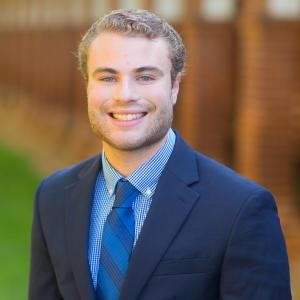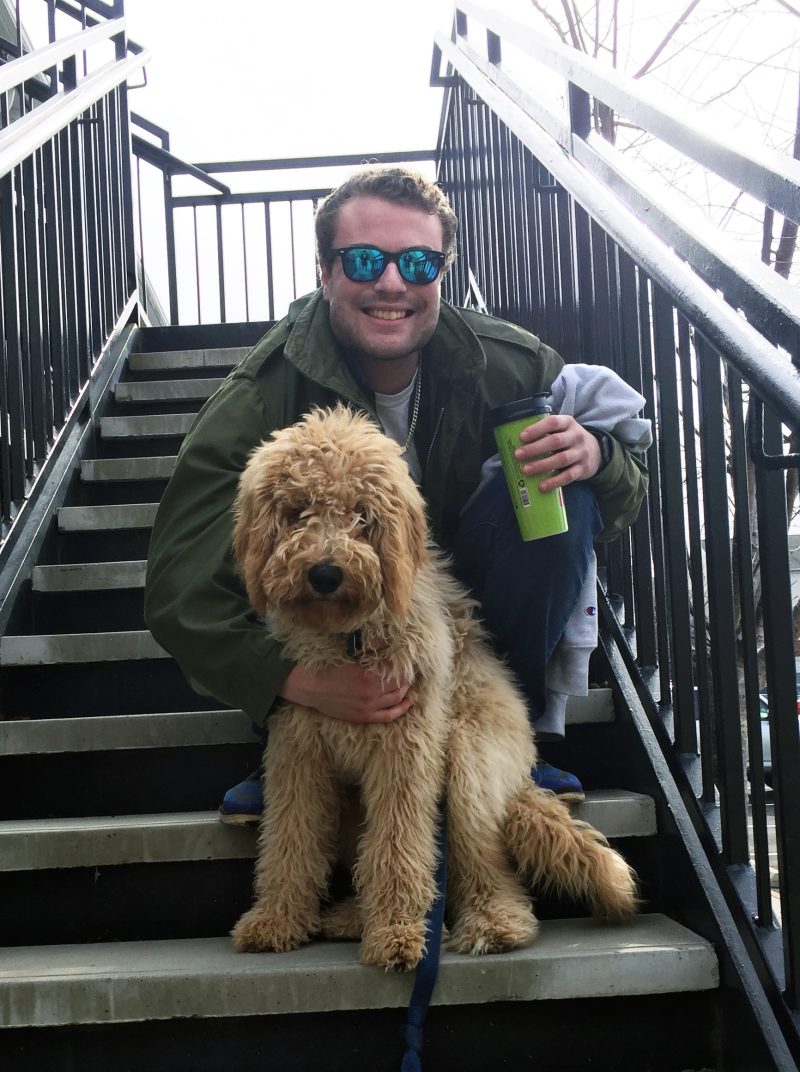Doctoral Student Profile: Bryan Christ
In Fall 2022, the University of Virginia School of Data Science will welcome its first Ph.D. in Data Science candidates. We sat down with one incoming student, Bryan Christ, who is stepping down as Assistant Director of Graduate Admissions with the School to pursue his doctorate degree. His path to data science was not a direct one—as is common for many in the field—and he shares his story with us, as well as his motivation and expectations.
 Tell us about your path to data science?
Tell us about your path to data science?
Our nation is plagued with persistent educational inequities that prevent children from accessing the opportunities they need to thrive. Working towards resolving these disparities is my passion, which is a journey I began by co-founding Rise Together, a nonprofit college access program I helped scale to serve over 1,500 first-generation high school students and 500 college mentors since its inception in 2016. Working in the nonprofit sector showed me how critical high-quality research is to validate and scale effective programs. This led me to pursue a Master of Public Policy (MPP) at the University of Virginia’s Batten School of Leadership and Public Policy.
During my MPP, I became fascinated with coding. It was the first time I was exposed using data to learn about and model the world around me[CEJ(1] . I immediately saw its applicability to my vision of furthering educational equity and took every coding course the MPP program offered. I later was exposed to the innovative research at the School of Data Science while working in admissions and realized that I was only scratching the surface of data science and its possible applications to furthering educational equity.
I learned to clean, interpret, and model data using regression analysis, but there was still a gap between my current knowledge and dream to build personalized educational learning algorithms. To reach my goal, I needed an in-depth understanding of Bayesian machine learning, computer science, big data systems, and deep learning that only a doctorate program could give me. And, since the School of Data Science was launching a Ph.D. program, it seemed like a perfect fit, so I applied and was accepted. As the data science field continues to grow, I know its tools will become increasingly utilized in education and I want to be at the forefront of this movement.
How did you prepare for the Ph.D. application process?
I first heard about the creation of the Ph.D. in Data Science program in fall of 2021 and immediately began working towards fulfilling the prerequisite courses while also working full time. In just six months, I will have completed Calculus II, Calculus III, Linear Algebra, and a coding bootcamp. It is really cool to see how far I have progressed in such a short time and to know how much broader my data science knowledge will be after starting the program. Because of my role in admissions with the School of Data Science and in order to keep my application process objective and unbiased, I did not participate in any meetings about the Ph.D. program, curriculum, or admissions process. It was important for me and the School that I was treated and reviewed like any other doctoral candidate.
What was your reaction when admitted to the Ph.D. program?
It was a normal work day and I was at my desk when the Director of Academic Operations & Admission called to congratulate me on my admission to the program. At first, I thought it was a work-related call but then when she shared the news, I was so excited that I started jumping up and down. I immediately called my mom and fiancé, Katie, to share the news. I later had an ice cream celebration with my family! I am beyond honored to be a part of the inaugural Ph.D. cohort and cannot wait to get started.
 Did working in admissions “behind the curtain” impact your decision to apply?
Did working in admissions “behind the curtain” impact your decision to apply?
If I wasn’t working as a staff member in the School of Data Science, I don't think I would have applied to the Ph.D. program. Being a part of the School’s administrative team empowered me to move into the field of data science. Prior to working here, I loved statistics and coding but never considered myself a math or computer science person. In fact, I was scared to take math or coding courses while I was an undergraduate student at UVA despite excelling in those same courses I took later in my master's program. I was so nervous about the quantitative courses that I even considered withdrawing from the master's program before it started.
The School of Data Science believes that anyone with a passion for data science can learn the subject material and solve compelling problems. Data science can be for everyone. This empowered me to lean into my love of coding and statistics and apply to the Ph.D. in Data Science. Working at the School has given me one advantage in that I have developed a deep affinity towards the School’s mission and values and sense of belonging among its faculty, staff, and students. I know this will help me transition successfully into the program.
What do you propose as the subject of your doctoral dissertation?
As mentioned before, I am driven to use data science to promote educational equity in policy and practice so all students—regardless of background—have access to educational opportunities they need to thrive. As a data scientist, I will design algorithms for online educational platforms that use the massive amount of available educational data to adapt to the unique needs, interests, and learning style of each student.
For example, current education software uses student errors to place them in a predesigned, one-size-fits-all curriculum delivered through virtual games and activities that supplement direct instruction from their teacher. However, the software does not adapt to how students may progress through the content. So, if a student does not understand a particular concept, they are presented with the same activity over and over. This can be incredibly frustrating to the student and cause severe anxiety when using these platforms. My vision is to improve software using machine learning algorithms that adapt to each learner by, for example, using error analysis and input data to pinpoint the specific concept a student does not grasp and present the material in a way proven to build confidence and understanding.